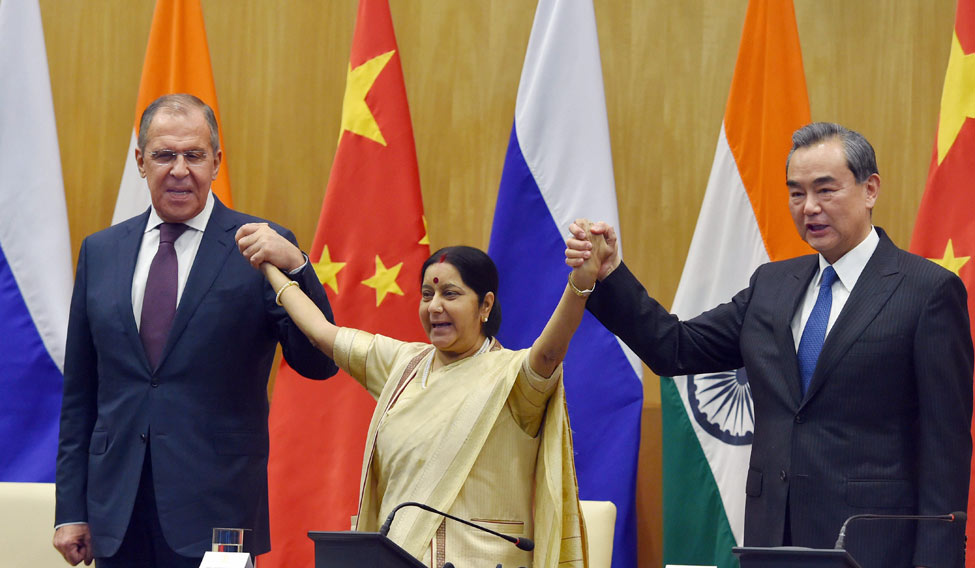India didn't get Russia and China to name and shame Pakistan, as it had managed earlier during the BRICS outing in Xiamen. However, the joint statement after the foreign minister level talks of the RIC (Russia India China ) trilateral on December 11 made a clear denouncement of “terrorism in all its forms and manifestations, including the recent heinous terrorist attacks around the world...''
The statement stressed on the need for a comprehensive effort to combat terrorism, the spread of terror ideology, its propaganda and radicalisation, and also to stop sources of terrorist financing. It stressed the need to disrupt recruitment and foreign terrorist fighters.
The group stressed on the need to implement existing international commitments on countering terrorism, like the UN global counter terrorism strategy. In fact, it also expressed concern that weapons of mass destruction should not fall into the hands of terror groups.
Russia's foreign minister Sergey Lavrov and his Chinese counterpart Wang Yi were in the country for the RIC, a significant trilateral, in its 15 session this year. RIC predates BRICS, but still exists as a separate entity.
The joint statement also emphasised that there needs to be a prevention of arms race in outer space, and said it supported the Conference on Disarmament. The ministers added that outer space should be preserved for peaceful exploration and use by the current and future generations.
Despite China's recent rejection of the UNCLOS (United Nations Convention on Laws of the Open Seas) decision on the South China Sea issue, a vexing issue with other island nations like the Phillipines, the statement went on to say, “We agree that maintaining regional security and economic architecture in the Asia Pacific that is open, inclusive and based on multilateralism, universally recognised principles of international law, is imperative for lasting peace and stability in the region.''
In fact, the RIC actually said that recognising the growing importance of maritime trade in a globalised world, it supported freedom of navigation and overflight rights based on principles of international law, particularly UNCLOS.
Taking note of the the recent announcement of Trump government in the US to shift its embassy in Israel to Jerusalem, the statement said: “We reiterate the need for a comprehensive, just and lasting settlement of the Israeli - Palestinian conflict on the basis of the relevant US resolutions, the Arab peace initiative and previous agreement between the parties aimed at creating an independent, viable, territoriality contiguous Palestinian state living side by side in peace and security with Israel.” India has so far been careful in wording its own response, saying that its opinion on Palestine was not influenced by any third nation.
In another snub to Trump's rejection of the Paris Accord on climate change—an accord that his predecessor Barack Obama was an architect of—the RIC reaffirmed its commitment to the implementation the Paris Agreement. “We recognise the importance of parties to fulfill their obligations in the pre-2020 period and call on parties to ratify the Doha Amendment to the Kyoto Protocol.''






